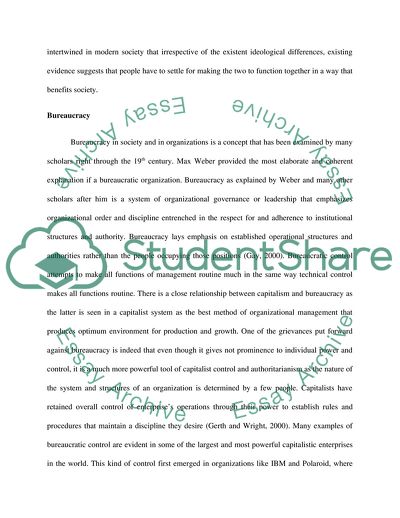Cite this document
(Why is Bureaucracys Relationship to Democracy so Conflicted Coursework Example | Topics and Well Written Essays - 1750 words - 3, n.d.)
Why is Bureaucracys Relationship to Democracy so Conflicted Coursework Example | Topics and Well Written Essays - 1750 words - 3. https://studentshare.org/politics/1815527-why-is-bureaucracys-relationship-to-democracy-so-conflicted
Why is Bureaucracys Relationship to Democracy so Conflicted Coursework Example | Topics and Well Written Essays - 1750 words - 3. https://studentshare.org/politics/1815527-why-is-bureaucracys-relationship-to-democracy-so-conflicted
(Why Is Bureaucracys Relationship to Democracy so Conflicted Coursework Example | Topics and Well Written Essays - 1750 Words - 3)
Why Is Bureaucracys Relationship to Democracy so Conflicted Coursework Example | Topics and Well Written Essays - 1750 Words - 3. https://studentshare.org/politics/1815527-why-is-bureaucracys-relationship-to-democracy-so-conflicted.
Why Is Bureaucracys Relationship to Democracy so Conflicted Coursework Example | Topics and Well Written Essays - 1750 Words - 3. https://studentshare.org/politics/1815527-why-is-bureaucracys-relationship-to-democracy-so-conflicted.
“Why Is Bureaucracys Relationship to Democracy so Conflicted Coursework Example | Topics and Well Written Essays - 1750 Words - 3”. https://studentshare.org/politics/1815527-why-is-bureaucracys-relationship-to-democracy-so-conflicted.


